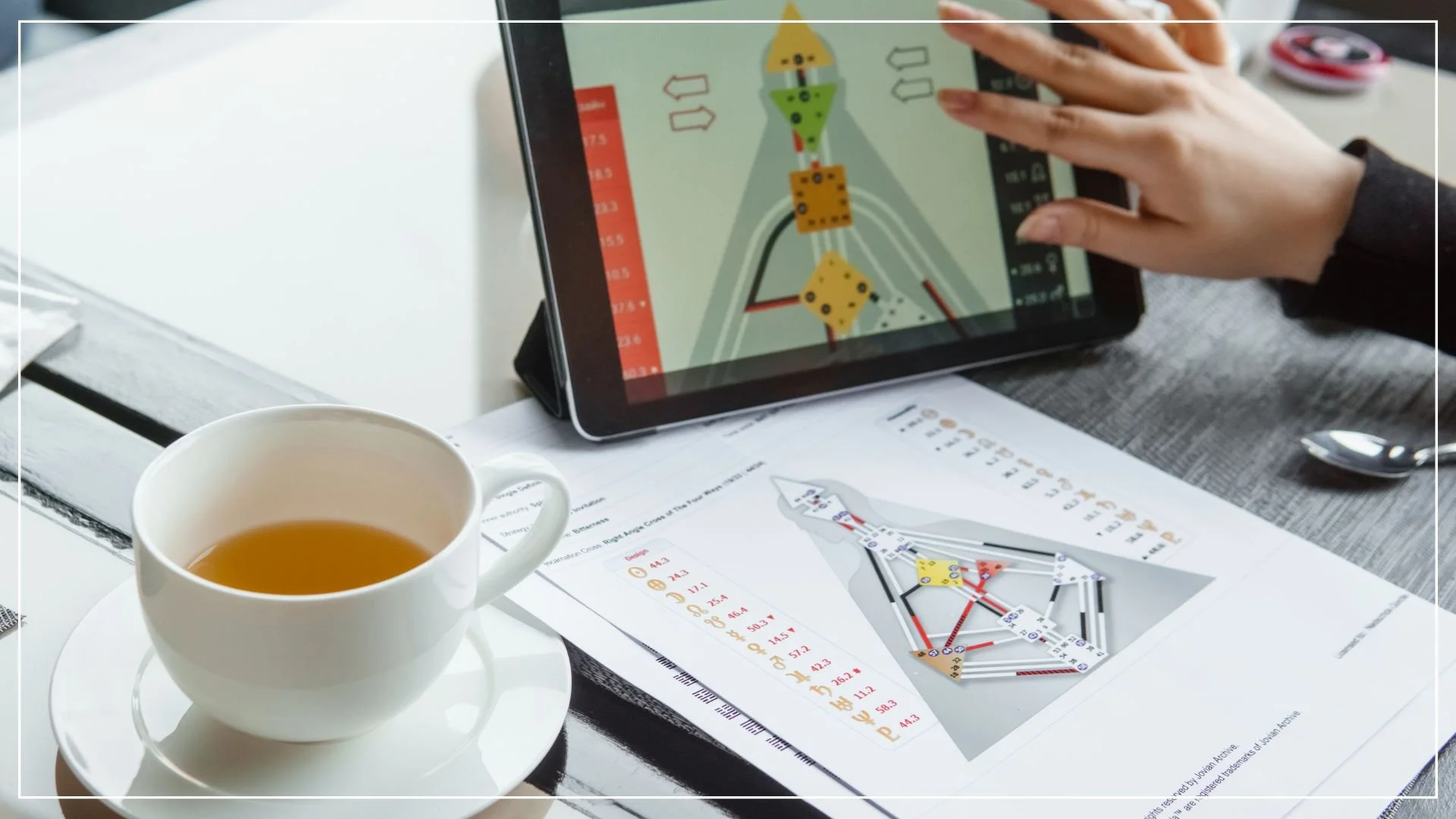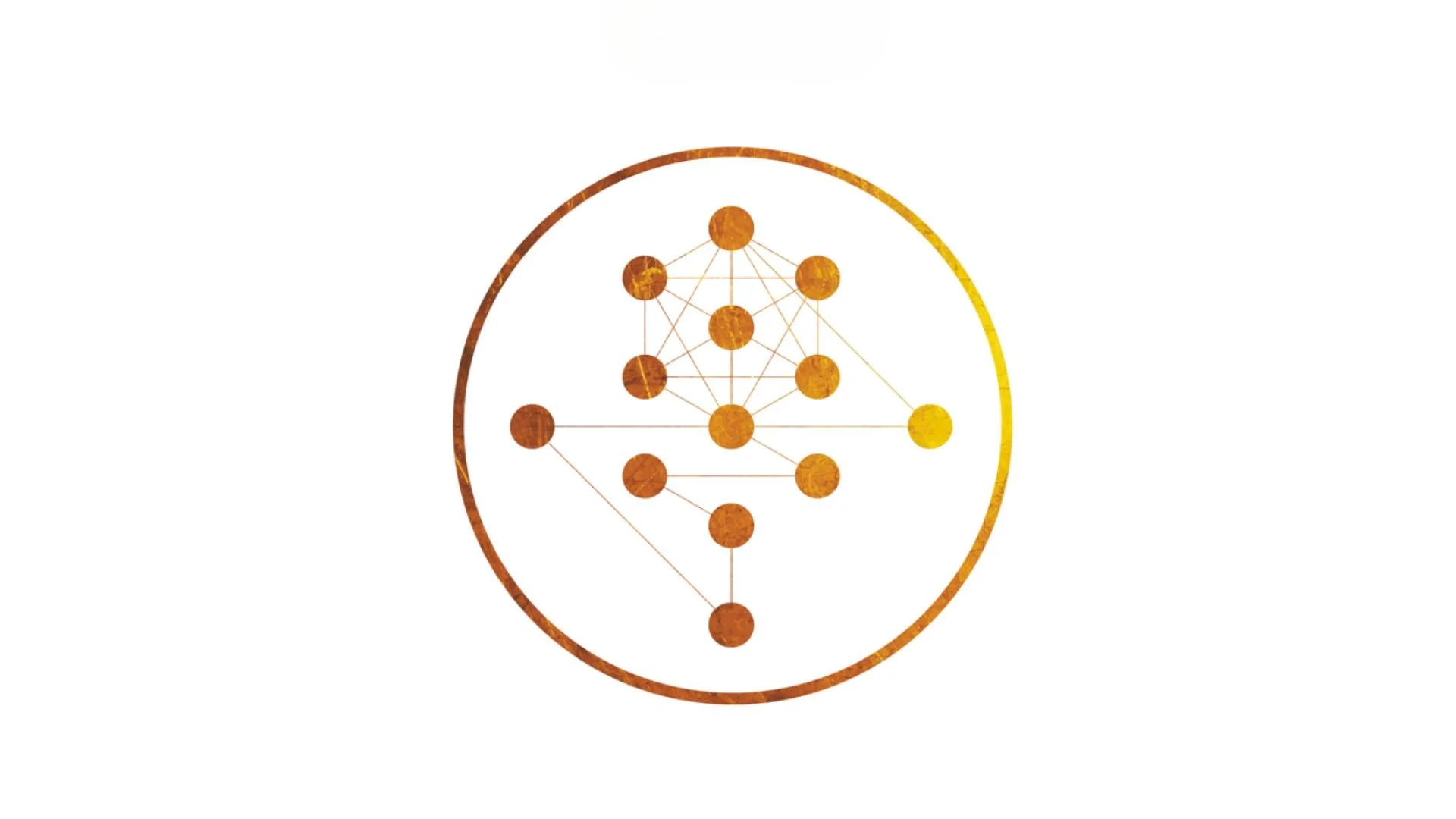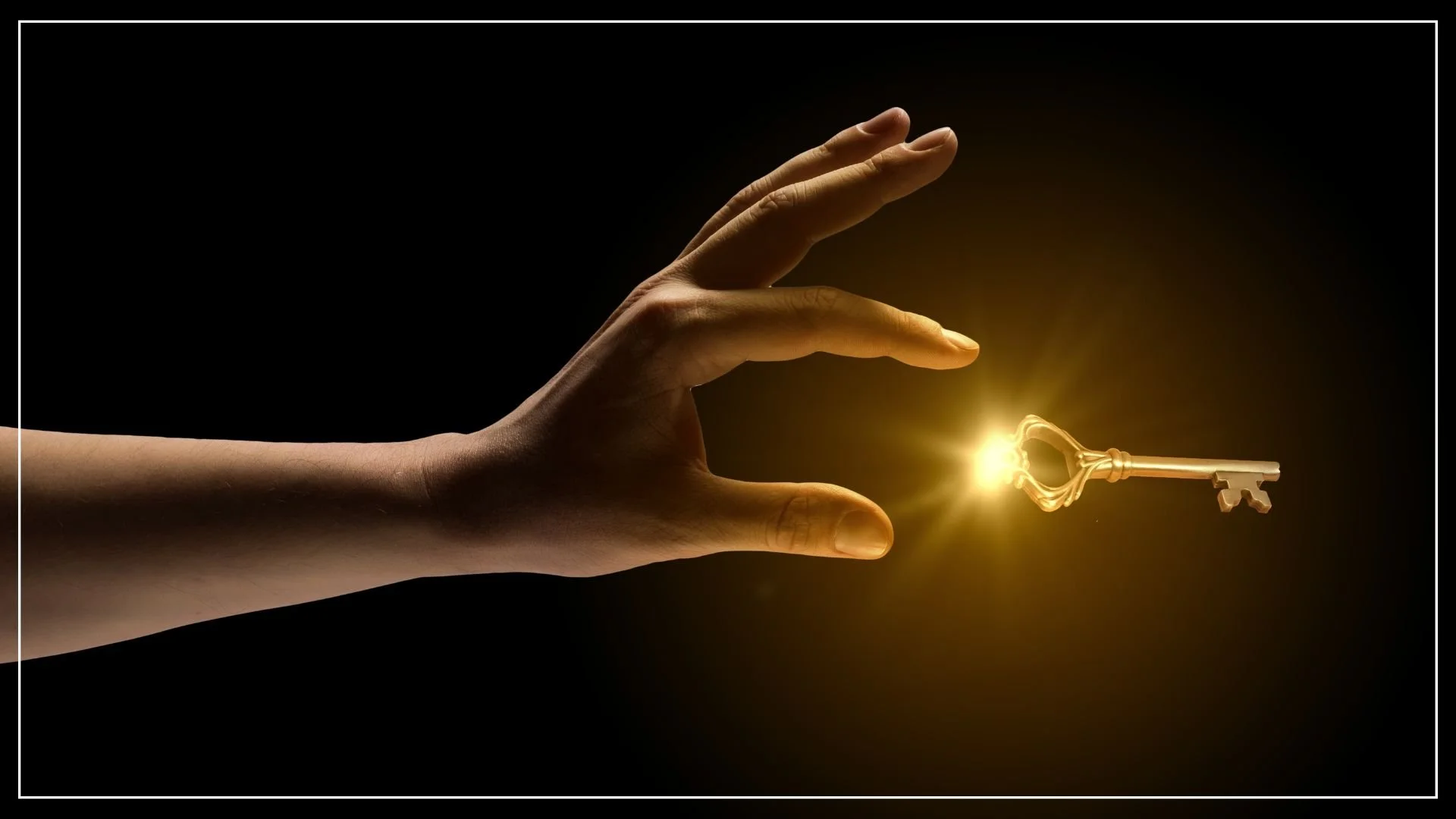This is What Human Design, Gene Keys, and Astrology as Self-Discovery Tools Looks Like
Use your Human Design, Gene Keys, and birth chart as tools for self-discovery. You can learn new insights into your energy, emotions, and patterns without obsessing over your charts.
We all have moments where we wish we could understand ourselves just a little better — why we work the way we do, why rest feels easier in one setting than another, or why certain relationships flow more naturally than others. There are so many tools and frameworks that can help us better understand ourselves, from personality tests to love languages. Among them are systems with mystical or esoteric roots, such as Human Design, Gene Keys, and birth charts (astrology).
These three tools can form quite a nice progression in how they help you approach self-discovery. They work best as part of a larger toolkit, alongside practices like therapy, journaling, meditation, and whatever other practises resonate with you.
A Note on Approach
This blog aims to present a variety of practices and mindsets to help you on your journey to becoming your best self. The tools presented in this post are just that, tools. They are meant to be used for expansion in self-understanding, not limitation. To help you excavate unknown parts of yourself, not to cover up any part of you.
What do I mean by this? The danger with any system is when we use it to create excuses. Saying "I can't do that because I'm a Projector" is very different to saying "As a Projector, I might want to consider how I approach that." These systems are meant to help you explore your thought patterns, inner workings, and maybe even your actions and reactions. In no way are they meant to become a rigid rule that limits you.
In every society, there are people with different roles: builders, cooks, carers, warriors, and leaders. But at any point, a cook could become a carer when circumstance calls for it. Your identity is fluid and multifaceted, shaped by your choices, experiences, people you meet, and growth. Using a label to excuse poor behaviour or limit your potential misses the entire point of personal growth.
With all of this in mind, I’m going to present you each of these tools in a grounded way.
What Your Birth Chart Says About You
You’re probably most familiar with astrology and the stereotypes associated with each of the zodiac signs. But your birth chart (natal chart) is so much more than your sun sign (the sign you know you are).
Your birth chart is a map of the sky at the exact time, date, and place of your birth. This map is used to interpret potential personality traits, drives, and patterns. Your sun sign relates to your ego and how you present yourself, while your moon sign expresses your emotions and influences how you feel. Your rising sign is how others see you. Then there are all the planets: Mercury is how you communicate, Venus is how you love, and Mars is how you take action, along with Jupiter, Saturn, Uranus, Neptune, and Pluto. All these signs can be different from your sun sign.
Think of astrology as a tool to read weather patterns. Moods can change like the wind, and the people you interact with may bring out sunshine or rain. Let this tool help you move through life equipped with all-weather protections. This chart can indicate tendencies (not put you into a box) and is a like an outline to understanding yourself (not a prediction of fate).
What Your Human Design Type Says About You
In a way, Human Design sits in the middle because it is thought to be more complex than ‘pop astrology’ and more practical than Gene Keys. At its core, Human Design is an experimentation framework.
Your chart is created using your birth data and is presented as a body graph meant to reveal your type: Manifestors, Generators, Manifesting Generators, Projectors, and Reflectors. This chart offers you guidance on when to make decisions, how to interact with others, what kind of work might suit you, and so on.
Think of Human Design as a tool to understand your energy mechanics or dynamics. As you read your generalised-type guide, let it inform what gives you energy and what drains you, and how best to rest. For example, a Generator is like a sea rescue, while a Projector is the lighthouse - both help sailors, but in different ways. This is to say that knowing your type isn't telling you what you can't do, but rather helping you understand how to be most effective without burning out. Your type can be helpful for self-reflection and self-awareness.
Knowing your Human Design can also help you in your career, as per LinkedIn and Forbes.
What your Gene Keys says about you
Where Human Design focuses on practical living strategies, Gene Keys is more about the spiritual journey, if you will. This tool integrates different thought systems, from astrology, to the Kabbalistic Tree of Life, to the eastern chakra system. Your Gene Keys profile identifies energy centres and gates, corresponding to an I Ching hexagram, which is also related to the 64 codons of human DNA. It sounds complicate, but each of the 64 Gene Keys has:
A Shadow (low-frequency expression)
A Gift (your natural strength or talent)
A Siddhi (the highest level of expression)
This concept underlies the belief that as you continually move from fear-driven living (shadow) into awareness or purpose-driven living (gift), you change the way your DNA expresses itself. In the same way that mind-body therapies (mindfulness, meditation, yoga, and tai-chi) are believed to do (2021 study, 2014 study). So rather than just telling you your type and strategy, it's meant to show you the potential transformation available in different areas of your life.
Think of your Gene Keys profile as clues on a scavenger hunt. You are given warnings, and strengths to help you find the treasure.
How to Use These Tools Constructively
The key to using these systems is to approach them as ways to explore patterns you might recognise in yourself, not as a way to define who you are:
Keep It Experimental
Approach your chart/design as a hypothesis to test, not a verdict to accept. Try living according to what it suggests for a few weeks or months, then reflect on what felt authentic versus forced. Ask yourself if it resonated and allow your lived experience to guide you.
Use ‘And’ Instead Of ‘But’
Instead of saying, “I'm a Projector, so I can't start things,” ask, "I'm a Projector, and I'm also someone who loves initiating projects - how might these work together?" Let the system expand your self-understanding rather than limit your growth.
Hold Multiple Perspectives
In a world of labels and adopted aesthetics, remember that you are more than any singular system can say. You're simultaneously your astrological chart, your Human Design type, your Gene Keys profile, your Myers-Briggs result, your numerology numbers, AND a mix of people you have encountered, a mix of experiences lived, and countless other facets. Sometimes, these systems can be contradictory because that’s the complexity of being human.
Focus On Patterns (Not Predictions)
Again, you should look to these tools to notice patterns in your behaviour and energy, not to predict your future or limit your choices. "I tend to..." is more useful than "I am..." or "I must..." or “I can’t because…”
Have Regular Reality Checks
It is easy to get caught up in something new. Try to regularly step back and ask: "Am I using this to understand myself better, or to justify staying stuck?" If you find yourself saying "I can't" because of your type/chart, pause and question that. You have free will – use it.
Stay Curious About Growth
Your relationship with your chart will evolve as you do. What felt irrelevant at 25 might be spot-on at 35.
Recommended reads: The Sacred Emotion of Intentional Curiosity: How Asking Better Questions Can Change Your Life
Practical ways astrology, Human Design, and Gene Keys can help you grow
Using these tools can become guides for imagination and not cages for identity when you use in ways that support an evolving sense of self.
Productivity and Energy
Human Design can offer insights into your natural energy type. Generators seemingly have unending energy when doing work they love, but can easily burn out when taking on too much. Manifestors are good at starting projects with bursts of energy and struggle to finish them, burning out when they don’t rest. Projectors need more rest than the other types. And reflectors need time to make decisions. Similarly, a prominent Mars in your chart might indicate a powerful drive and a direct approach to goals, while a strong Saturn might point to a disciplined, long-term approach
Recommended read: Burnout 101: Causes, Signs and Useful Ideas to Recover and Prevent It
Rest and Renewal
The systems can shed light on your unique needs for rest. Your Human Design Profile or aspects of your birth chart might suggest that you recharge best in solitude, while others thrive on social connection. This helps you build a self-care routine that truly works for you.
Recommended read: Understanding the 7 Types of Rest and How to Recharge
Strengths and Shadows
Both your birth chart and Human Design chart can identify areas where you naturally excel and where you may face challenges. Similarly, the Gene Keys can highlight your gifts and the "shadow" aspects you can work on. Rather than seeing any weaknesses as things to be fixed, you can reframe it as an area for growth and compassion. It could become a life lesson or an opportunity to develop a specific skill that can help work around ‘weaknesses’.
Relationships and Communication
Your Gene Keys can advise how to show up more authentically and lovingly for others. Your birth chart is a rich resource for understanding your communication style, emotional needs, and what you seek in partnerships. For example, your Venus sign reveals how you express affection, and your Mercury sign shows how you think and communicate. Understanding these can help you avoid common misunderstandings and build stronger connections.
Related reads: 11 Things Couples in Healthy Relationships Have and Knowing Each Other’s Love and Fight Languages is Essential to a Healthy Relationship
Beyond the Scepticism
I respect the criticism and cynicism for each of these tools, and it is good to have a healthy dose of scepticism when reading anything. The language can be esoteric, and they often come with a reputation for being overly deterministic or just plain "woo-woo." But seeing them just as tools to help you understand yourself can help live more authentically, leading to a happier life.
Sometimes, when you are looking for solid ground, you cling onto anything that can give you a sense of control and safety. These tools are meant to help you repair and protect your boat, not become an island to become stranded on. They are also meant to add to who you are, not become who you are.
Ultimately, these systems can provide a new vocabulary for the things you already instinctively know about yourself. They can be a mirror, reflecting your innate wisdom back to you. The key is to approach them with an open mind, take what resonates, and leave the rest. The journey to understanding yourself is a lifelong one, and these tools are simply another set of helpful signposts along your path. Another interesting read is: Greatest Benefits and Themes of Self-Discovery and Self-Reflection Journaling.
How have you used self-discovery tools in your own life? I'd love to hear about it in the comments below.
Connect with Spirited Earthling on your favourite social platforms and say hello 🌻
Resources for mind, body, and soul growth available in the Shop🌿




